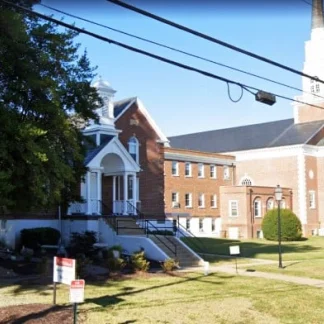Wellness Group Youth and Family Services
Wellness Group Youth and Family Services is a private rehab located in Richmond,...
McShin Foundation is a recovery community organization that offers drug and alcohol addiction treatment for individuals in Richmond, Virginia. They also provide valuable community resources, such as referrals, social services, and family support.
Addiction-related services offered at McShin Foundation include mental health assessment and counseling, residential drug and alcohol rehab, sober living, and detox.
Mental Health Assessment and Counseling These assessments evaluate an individual’s mental health and the severity of substance use disorder, in order to devise an appropriate treatment plan. As part of their treatment, clients may benefit from individual, group, and/or family counseling.
Residential Addiction Treatment The McShin Foundation runs a 28-day residential recovery program for adults. Their recovery homes are separated by gender and involve a full continuum of addiction treatment services, including medical detox, mental health treatment, counseling, skills groups, 12-step recovery groups, and relapse prevention support. Each client is assigned a recovery coach and may access clinical services through their community partners with free transportation.
Treatment programs are available to adults who have a history of relapse, re-entry, and need aftercare following treatment.
Contact us for more information: (804) 249-1845

Connect with McShin Foundation by calling their admissions team directly.
(804) 249-1845 Website Get DirectionsExperiential therapy is a form of therapy in which clients are encouraged to surface and work through subconscious issues by engaging in real-time experiences. Experiential therapy departs from traditional talk therapy by involving the body, and having clients engage in activities, movements, and physical and emotional expression. This can involve role-play or using props (which can include other people). Experiential therapy can help people process trauma, memories, and emotion quickly, deeply, and in a lasting fashion, leading to substantial and impactful healing.
Group therapy is any therapeutic work that happens in a group (not one-on-one). There are a number of different group therapy modalities, including support groups, experiential therapy, psycho-education, and more. Group therapy involves treatment as well as processing interaction between group members.
In individual therapy, a patient meets one-on-one with a trained psychologist or counselor. Therapy is a pivotal part of effective substance abuse treatment, as it often covers root causes of addiction, including challenges faced by the patient in their social, family, and work/school life.
Life skills trainings involve all the skills a person must have in order to function successfully in the world. These include time management, career guidance, money management, and effective communication. Truly successful addiction recovery is based on the ability to not only live substance-free, but to thrive. Life skills teaches the practical necessities of functioning in society, which sets clients up for success in life, and therefore sobriety.
Group therapy is any therapeutic work that happens in a group (not one-on-one). There are a number of different group therapy modalities, including support groups, experiential therapy, psycho-education, and more. Group therapy involves treatment as well as processing interaction between group members.
In individual therapy, a patient meets one-on-one with a trained psychologist or counselor. Therapy is a pivotal part of effective substance abuse treatment, as it often covers root causes of addiction, including challenges faced by the patient in their social, family, and work/school life.
Life skills trainings involve all the skills a person must have in order to function successfully in the world. These include time management, career guidance, money management, and effective communication. Truly successful addiction recovery is based on the ability to not only live substance-free, but to thrive. Life skills teaches the practical necessities of functioning in society, which sets clients up for success in life, and therefore sobriety.
In individual therapy, a patient meets one-on-one with a trained psychologist or counselor. Therapy is a pivotal part of effective substance abuse treatment, as it often covers root causes of addiction, including challenges faced by the patient in their social, family, and work/school life.
Life skills trainings involve all the skills a person must have in order to function successfully in the world. These include time management, career guidance, money management, and effective communication. Truly successful addiction recovery is based on the ability to not only live substance-free, but to thrive. Life skills teaches the practical necessities of functioning in society, which sets clients up for success in life, and therefore sobriety.
Life skills trainings involve all the skills a person must have in order to function successfully in the world. These include time management, career guidance, money management, and effective communication. Truly successful addiction recovery is based on the ability to not only live substance-free, but to thrive. Life skills teaches the practical necessities of functioning in society, which sets clients up for success in life, and therefore sobriety.
Wellness Group Youth and Family Services is a private rehab located in Richmond,...
Henrico Area Mental Health – Richmond Medical Park is a public rehab located in ...
Al – Anon and Al – Ateen Public Information Service is a non-profit rehab locate...
Rubicon – Outpatient Services is a private rehab located in Richmond, Virginia. ...